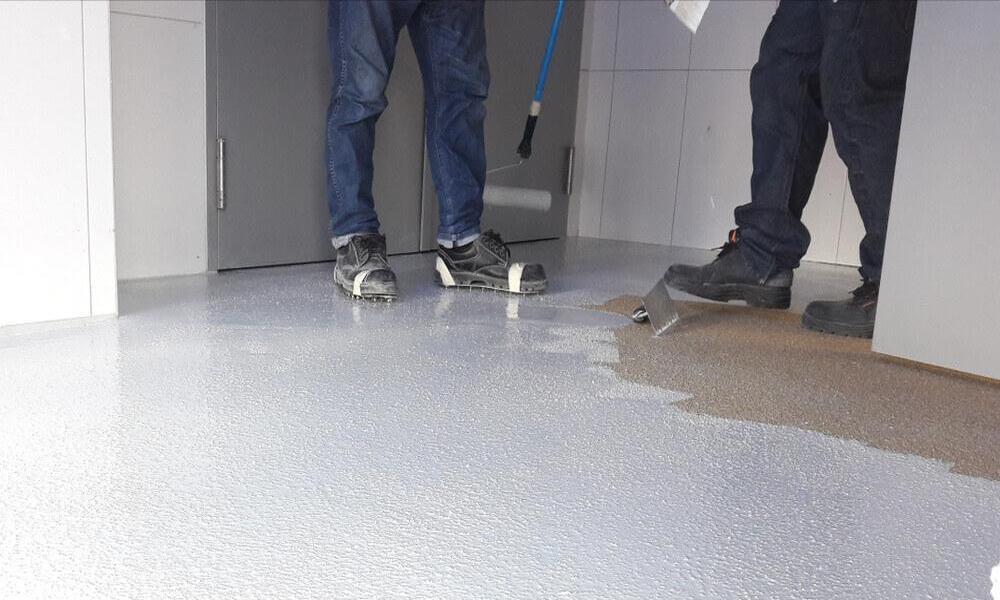
What are the benefits of epoxy flooring?
Epoxy flooring is a type of flooring that is made from a combination of resins and hardeners. When mixed together, these materials form a hard, durable surface that is resistant to impacts, abrasions, chemicals, and moisture. Epoxy flooring is commonly used in commercial and industrial settings due to its durability and easy maintenance, but it is also becoming popular in residential applications as well.
Epoxy flooring can be applied over a variety of surfaces, including concrete, wood, and tile. It can also be used to create a seamless surface, which makes it a popular option for areas that require a hygienic environment, such as hospitals and food processing facilities. There are several benefits to choosing epoxy flooring for your home or commercial space.
Durability and Easy maintenance:
Epoxy flooring is extremely durable and can withstand heavy foot traffic, impacts, and abrasions without showing signs of wear and tear. This makes it ideal for high-traffic areas, such as garages, warehouses, and industrial facilities. It can be swept, mopped, or hosed down as needed to keep it looking clean and new.
Resistance to chemicals:
Epoxy flooring is resistant to chemicals, including oils, acids, and solvents, which can cause damage to other types of flooring. This makes it a popular choice for industrial and commercial facilities where these types of substances may be present. Epoxy flooring can be finished with a non-slip surface, making it a safer option for areas that may become slippery when wet, such as bathrooms and pool decks.
Customizable and Cost-effective:
Epoxy flooring comes in a wide range of colors and patterns, making it a highly customizable option for any design aesthetic. It can even incorporate logos or designs specific to your business or brand. Epoxy flooring is a cost-effective flooring option when compared to other types of flooring, such as hardwood or tile. It is also long-lasting, which means it does not need to be replaced as often as other flooring options. Overall, the durability, easy maintenance, resistance to chemicals, slip-resistant surface, customization options, and cost-effectiveness of epoxy flooring make it a popular choice for many different types of spaces.
What will damage an epoxy floor?
While epoxy flooring is a durable and long-lasting option for many different types of spaces, some things can damage the surface.
Scratches and abrasions: While epoxy flooring is resistant to impacts and abrasions, it is not completely scratch-proof. Heavy furniture or equipment dragged across the surface can cause scratches or gouges.
Chemicals: While epoxy flooring is resistant to chemicals, prolonged exposure to some chemicals, including acids and solvents, can cause damage to the surface.
Heat: Epoxy flooring can become damaged if exposed to high temperatures, such as from hot tires on a car or from welding equipment.
Moisture: Epoxy flooring is resistant to moisture, but it is not completely waterproof. Prolonged exposure to standing water or high humidity can cause damage to the surface.
Improper installation: Improper installation of epoxy flooring, including inadequate surface preparation or incorrect mixing of the epoxy resin, can cause the surface to become damaged or delaminated.
Overall, with proper installation and regular maintenance, epoxy flooring can last for many years without showing signs of damage. It is important to follow the manufacturer’s recommendations for cleaning and maintenance and to avoid exposing the surface to anything that could cause damage.
